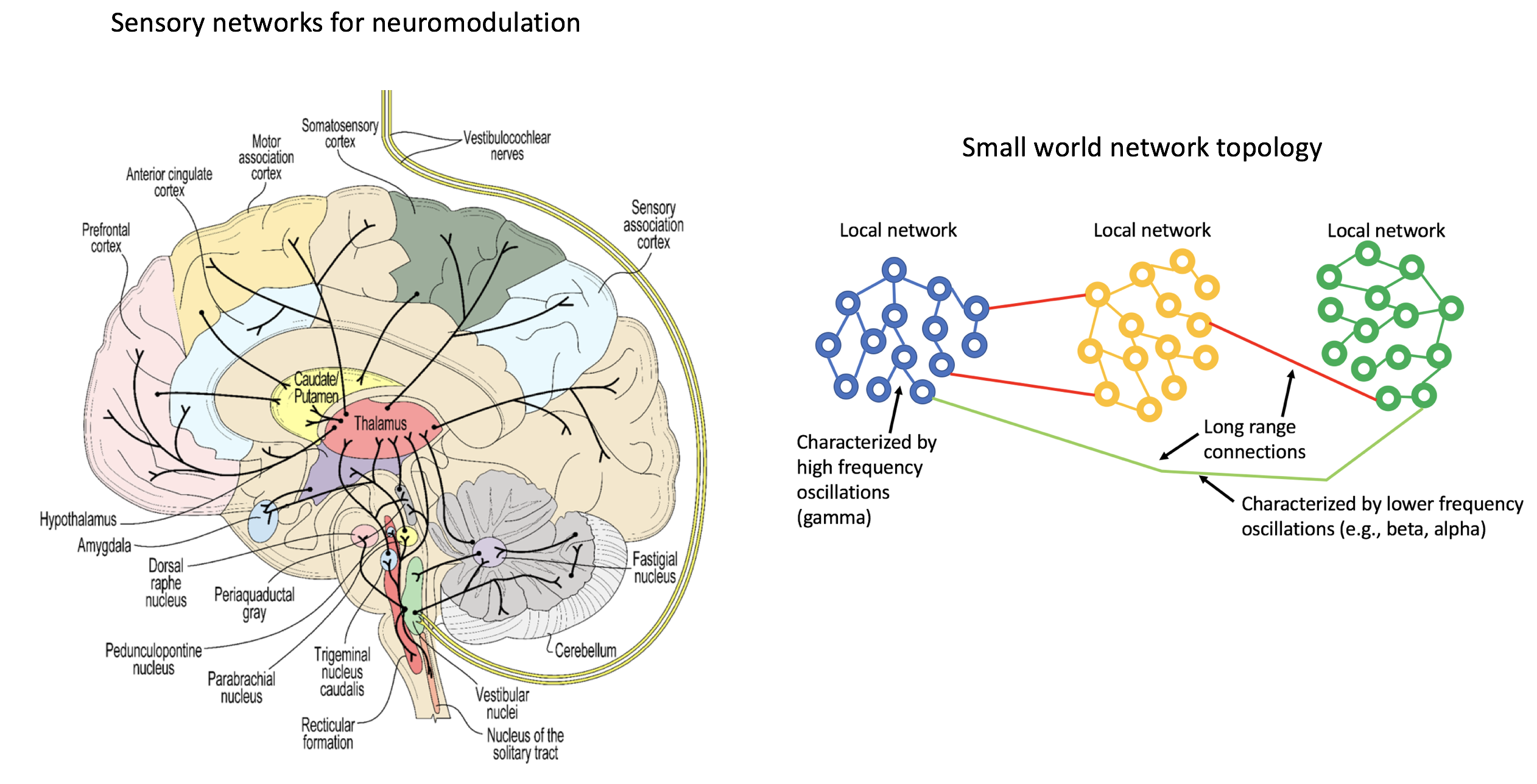We describe a model of neurological disease based on dysfunctional brain oscillators. This is not a new model, but it is not one that is generally appreciated by clinicians. The value of this model lies in the predictions it makes and the utility it provides in translational applications, in particular for neuromodulation devices. We provide a perspective on the difference between neuromodulation devices that enforce an externally administered stimulus with devices that provide input to sensory receptors and thus stimulate endogenous sensory networks. Current forms of clinically applied neuromodulation are of the former type, including devices such as (implanted) deep brain stimulators (DBS) and various, noninvasive methods such as transcranial magnetic stimulation (TMS) and transcranial current methods (tACS, tDCS). The challenge with these methods is that they are not sensitive to underlying neuronal dynamics and work by applying an empirically derived electrical current waveform to affect dynamical patterns. Neuromodulation of a sensory organ accesses the same pathways that natural environmental stimuli do and, importantly, the modulatory signal will be transformed as it travels through the brain, allowing the modulation input to be consistent with regional dynamics. We present specific examples of devices that rely on sensory neuromodulation and evaluate the translational potential of these approaches. We argue that sensory neuromodulation is well suited to probe and, ideally, repair dysfunctional brain oscillators, thus providing a novel therapeutic approach for neurological diseases.

